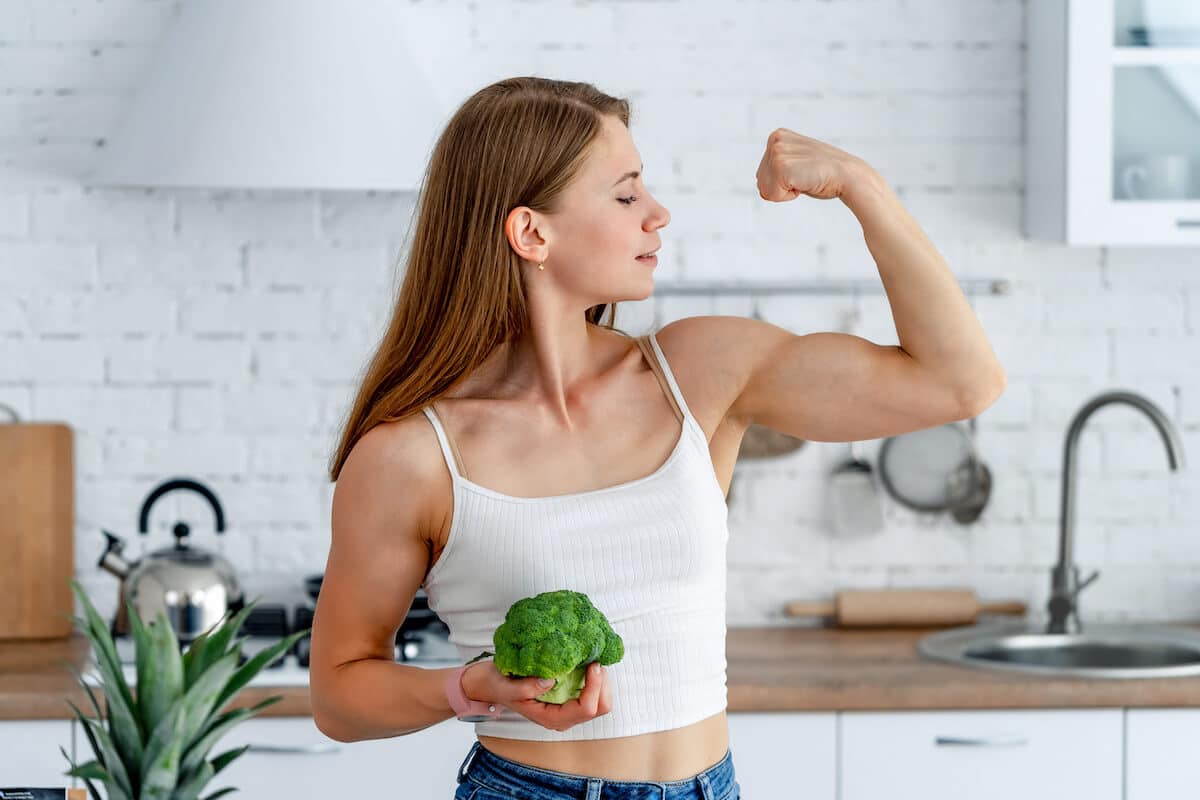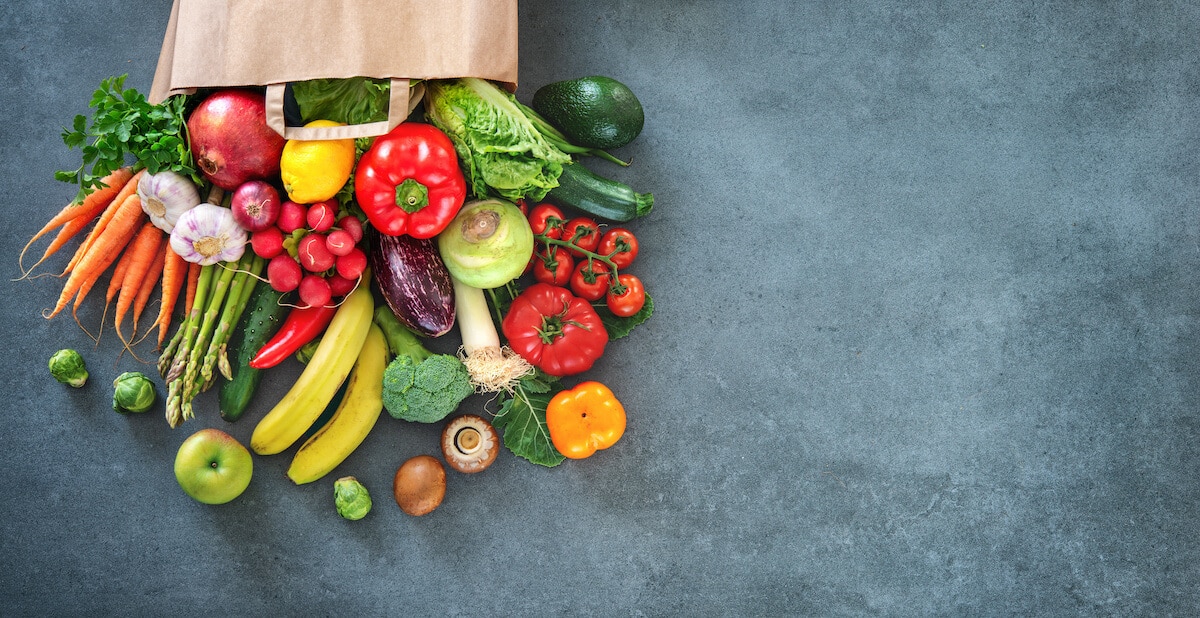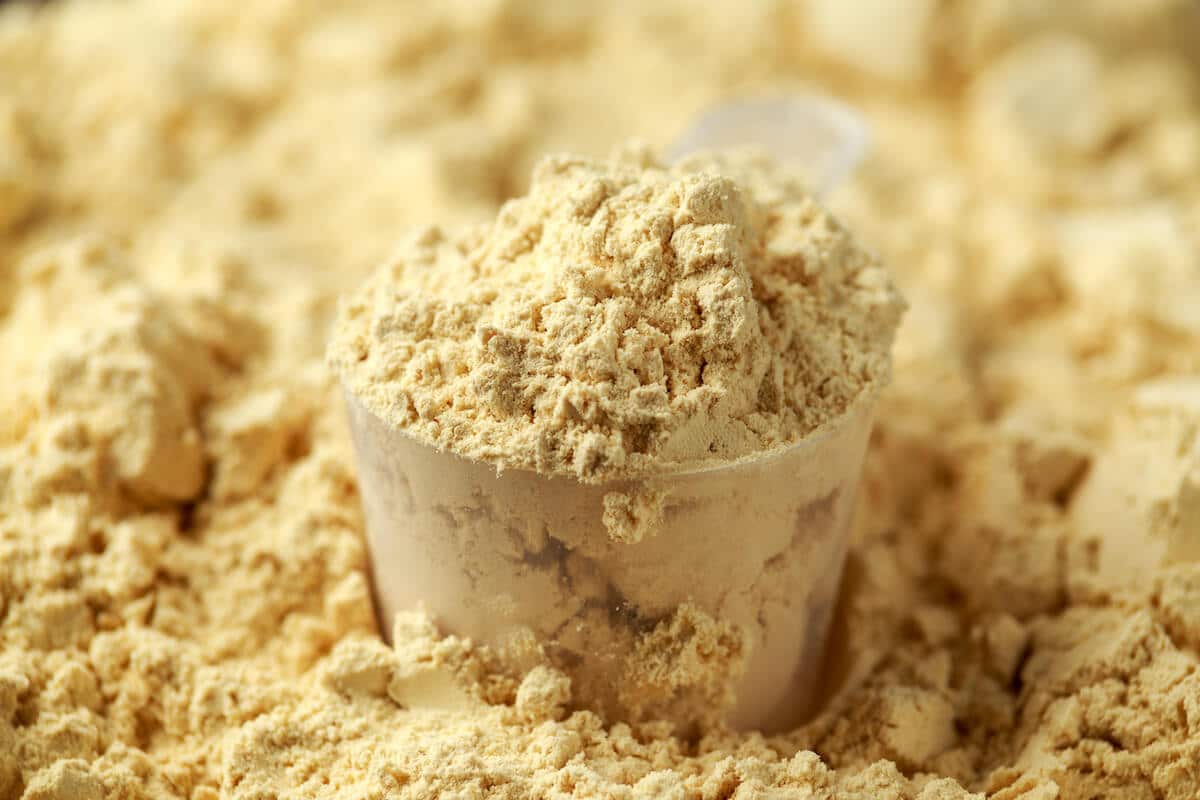
19 Nov Vegan Protein Powder 101: Know the Facts
Vegan protein powder is an excellent way to increase your protein intake without adding more animal products to your diet. With the quality of protein supplements available today, you no longer need to choose between environmental sustainability and better nutrition.
Protein shakes and supplements are a good idea for anyone, regardless of your fitness level or health goals. And if you are trying to build muscle or get in shape, they can help support your health, wellness, and overall fitness goals.
In this article, we’ll take a look at vegan protein powder and its benefits, as well as how to find the best plant-based protein supplement for you.
Why Vegan Protein Powder?
Vegan protein powder, also known as plant protein powder, is made from plant-based products only. It contains no animal products, which means it’s completely dairy-free. Vegan protein powder is ideal for those following a vegan diet as well as those who have a dairy sensitivity or want to reduce their consumption of animal products.
There are many reasons why you may want to use vegan protein powder, from lactose intolerance to reducing your impact on the environment. Vegan protein powder is useful for vegans and non-vegans alike, though it’s most commonly used by vegans and those who cannot eat animal-based protein sources like casein or whey protein.
A Closer Look at the Vegan Diet
Also known as a plant-based diet, a vegan diet does not contain any products that come from an animal. This is not to be confused with a vegetarian diet, which refers to a diet that does not contain meat, poultry, or fish, but still includes animal products such as milk, butter, honey, and yogurt.
Vegan diets are more popular today than ever before, and they continue to gain popularity with each passing year. In addition to a wealth of environmental benefits, a well-planned vegan diet offers several health benefits, including:
- Increased Nutrient Intake: Vegan diets may be richer in dietary fiber, antioxidants, potassium, folate, magnesium, and vitamins A, C, and E, as well as beneficial plant compounds.
- Lower Bodyweight: Vegans tend to be slimmer with a lower BMI (body mass index) than their non-vegan counterparts.
- Better Overall Health: Vegan diets may promote improved kidney function and lower blood sugar levels than non-vegan diets. This can lead to a decreased risk of type 2 diabetes.
- Reduced Risk of Disease: Vegans have a lower risk of heart disease and certain types of cancer.
- Less Pain: Vegan diets may help reduce pain from arthritis while improving other symptoms like stiffness and joint swelling.
The key to achieving these health benefits on a vegan diet is well-planned nutrition. It takes a balanced diet consisting primarily or solely of whole vegetables, fruits, legumes, nuts, seeds, and grains with a complete nutrient profile to reap the benefits.
Keep in mind that just because something is vegan doesn’t necessarily mean it’s good for you. There are still plenty of vegan junk foods, such as soda, chips, candy, and fast food with added sugar and sodium that aren’t healthy for anyone.
Proper Nutrition on a Vegan Diet

Proper nutrient intake is of particular importance, especially concerning calcium, iron, vitamin B-12, vitamin D, omega-3 fatty acids, and protein. Calcium, iron, vitamin B-12, and vitamin D are easy to monitor with annual blood tests and can be adjusted with vitamin supplements.
Omega-3 fatty acids, also known as alpha-linolenic acid (ALA), cannot be monitored as easily. But including foods like walnuts, chia seed, flaxseed, and hemp seed helps ensure you get enough of this essential fat in your diet.
As for protein, you can easily monitor your protein intake with apps like MyFitnessPal and increase it using vegan protein powders or supplements.
Protein Intake on a Vegan Diet
The ideal daily protein intake varies from person to person, and you’ll want to experiment with how much you’re eating if you’re trying to reach fitness goals. Generally, though, people who exercise regularly should aim for a daily value of between 0.5 and 0.8 grams of protein per pound of body weight. If you’d like to dive deeper, we invite you to learn more about how much protein your body can absorb and why it matters.
When you’re following a vegan diet or limiting your consumption of animal products, it’s crucial to understand and monitor dietary protein intake. You need to eat enough protein for your weight, but you’ll also want to ensure you’re eating the right proteins.
Animal proteins like whey, casein, fish, beef and poultry contain what is known as complete proteins. Soy proteins, including tofu, tempeh, and soybeans, also contain complete protein. This means the protein includes all nine essential amino acids required for your body to function correctly and build muscle.
Essential amino acids are the building blocks for almost every system in your body. And they’re “essential” because your body cannot produce them on its own. This means that you must provide these essential amino acids through your diet. The essential amino acids include:
- Histidine
- Isoleucine
- Leucine
- Lysine
- Methionine
- Phenylalanine
- Threonine
- Tryptophan
- Valine
Of these essential amino acids, three are known as branched-chain amino acids (BCAAs). BCAAs can help you meet your fitness goals when added to a balanced diet, and some BCAA supplements are vegan. But unless you’re an athlete working towards distinct goals, you’ll get enough BCAAs from a quality vegan protein powder alone.
How Vegan Protein Powder Helps
Without proper planning, it’s all too easy not to eat complete proteins in every meal, especially if you don’t eat soy products often. When this happens, your body isn’t getting the essential amino acids it needs to build muscle and maintain overall wellness. But simple combinations of two foods with incomplete proteins can easily create a complete protein.
For example, peanut butter and wheat bread contain incomplete proteins on their own, but together they contain all nine essential amino acids to make a complete protein. The same is true for split pea soup and cornbread, which contain incomplete proteins separately, but together they contain all nine essential amino acids.
The beauty of vegan protein powders is that they eliminate the work of creating complete proteins in your diet. All but the most dedicated nutritionists would find it confusing or time-consuming to look up amino acid profiles for every meal. But good vegan protein powders provide all of your essential amino acids, and most list amino acid profiles on the label.
Finding the Best Vegan Protein Powders

You’ll have a variety of vegan protein powders to choose from, especially with the popularity of plant-based eating today. If you’re not a fan of smoothies, you can also find vegan protein bars and meal replacements to help you get your nutrients.
Be sure to consider what you want from a vegan protein powder and if you have any other dietary restrictions. Fortunately, you can find products that suit requirements, such as:
- Soy-free
- Gluten-free
- Non-GMO
- Organic
- Unflavored
- Low-carbohydrate/keto
- Sugar-free
Vegan protein powders also often contain superfoods, zero-carb artificial sweeteners, and other add-ins. You might spot the following on an ingredient list:
- Stevia
- Probiotics
- Digestive enzymes
- Turmeric
- Quinoa
- Alfalfa
- Brown rice
- Hemp seed
- Pea protein
- Pumpkin seeds
Different brands feature different protein blends. They may contain one or more protein sources, such as brown rice protein, hemp protein powder, pumpkin seed protein, and pea protein powder.
Quality Matters
Including vegan protein powder in your diet is an excellent step in the right direction. But what matters most is that you’re getting high-quality ingredients that meet your standards. Ingredients from quality sources will benefit your body more than low-quality ingredients, even if the protein content on the label is the same.
Organic protein powder using organic plant protein sources is a good indicator of quality. Organic ingredients have a higher nutrient density with lower levels of pesticides, which means that organic vegan protein powder could provide the most benefits to your health.
Another indicator of quality is an emphasis on bioavailability and absorption. Ingredient Optimized products are designed to improve protein and nutrition absorption through increased protein bioavailability, maximizing your body’s performance. Non-optimized vegan protein powders are not designed with bioavailability in mind, meaning that your body might not be able to digest and absorb all of the nutrients.
For example, ioPea Protein is naturally optimized for bioavailability, and it has been clinically shown to produce bioavailability equal to whey protein. It’s also clinically proven to be nearly three times more bioavailable than non-optimized pea protein powder. Another benefit is that ioPea is made with organic pea protein, which brings all the benefits of organic ingredients to the product.
A Note on Flavor
Quality products matter for your health, but it’s also important that you enjoy your vegan protein powder. You’ll have flavor options like mocha and chocolate peanut butter, as well as unflavored products. And you can modify your flavors with add-ins.
For example, a peanut butter shake can become a chocolate peanut butter shake when you add cocoa powder; a vanilla shake can become a mocha shake when you add instant coffee, or it can become a berry shake with a handful of frozen mixed berries.
Starting with samples from brands you’re interested in can help you find a flavor profile you like. And quality matters, too. For example, ioPea has a neutral flavor without the bitter or acidic aftertastes common in some vegan protein powders.
Improve Your Diet With Vegan Protein Powder
Whether you’re following a vegan diet or simply reducing your animal product intake, vegan protein powder can boost your health and wellness. You’ll have a range of options, but it’s best to choose only high-quality products. Low-quality options can be a waste of money if your body can’t absorb all of the protein, and they’re more likely to taste unpleasant.
High-quality vegan protein powders are a better value for your wallet and your body. Plantein by Kaged Muscle, for example, uses ioPea for quality protein and is available in delicious flavors like peanut butter cookie, banana bread, and cinnamon roll.


